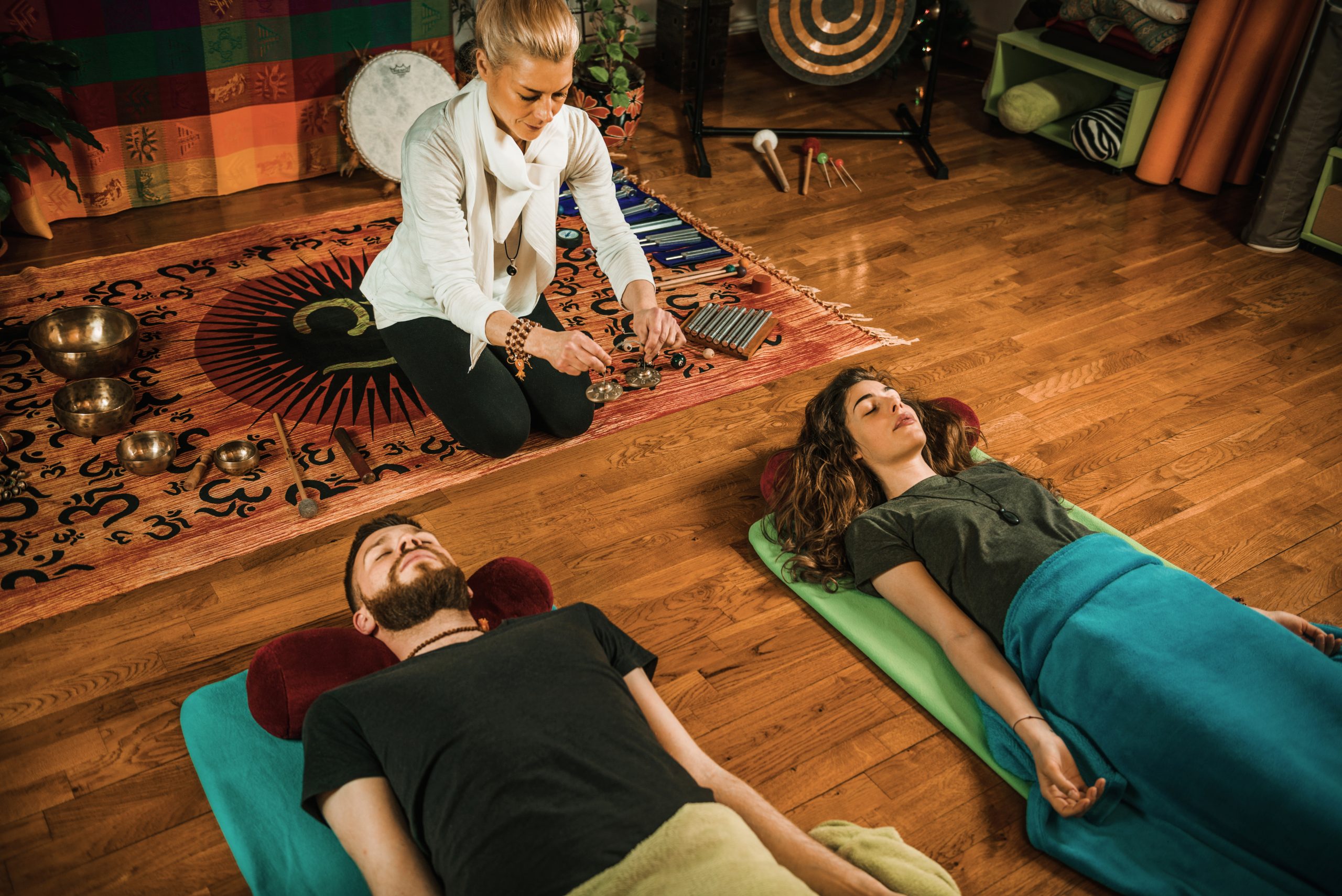Holistic Health: 5 Alternative Therapies For Healing And Wellness

Holistic health focuses on how the mind, body, and spirit are all connected to try to achieve total health. Alternative treatments are an important part of this method because they offer a wide range of techniques that can be used along with standard medicine. The goal of these treatments is to heal and improve health by getting to the root reasons of problems instead of just fixing the symptoms.
They include a lot of different techniques, like acupuncture, plant medicine, massage treatment, and spirit healing. By using these alternative treatments, we can improve our physical, mental, and social health, which will make our lives better overall. People who have ongoing pain, illnesses tied to stress, or mental health problems may benefit the most from complementary medicine.
Alternative treatments focus on the whole person and use the body’s natural healing power to help people take care of themselves and find peace. Accepting these alternative treatments can give people more ways to heal and give them the power to take an active role in their own health.
1. Massage Therapy
Massage therapy is a popular alternative treatment in which a trained professional works on the body’s soft parts. Massage treatment has been around for thousands of years and is now well known for its many health benefits and cultural importance.
Masseurs knead, rub, or press on the muscles and joint parts of the body with their fingers, hands, or even tools. These methods can range from light touches to strong pressure, based on what the person wants and needs.
There are many ways that massage treatment can help your physical and mental health. It can help ease pain by increasing blood flow and lowering swelling in the hurt area. Endorphins, the body’s natural “feel-good” hormones, are released when it works, which also helps lower stress. In turn, this helps you relax and feel calm all around.
Massage therapy can also make you more flexible and increase your range of motion. It can also improve circulation and make your immune system stronger. It has also been said that regular lessons can help reduce worry, ease the signs of sadness, and improve the quality of sleep.
2. Art Therapy
Art therapy is a whole-person method to health and healing that uses drawing, painting, and sculpture to help people with social and mental problems. It gives people a safe place to talk about their thoughts and emotions that they might not be able to put into words.
People can get in touch with their subconscious mind and explore their deepest feelings and thoughts through art therapy. People can get a better understanding of their feelings by making art, which can help them deal with and process those feelings in a healthy way. It can also be a way to describe yourself by giving you a way to show feelings and thoughts that are too complicated or exhausting to say out loud.
During art therapy meetings, different methods and materials can be used based on the person’s wants and tastes. Drawing, painting, and modeling are all popular ways to help people express themselves and learn more about themselves. People can let out their feelings, feel less stressed, and learn more about themselves by doing these things.
Aside from art-based tasks, art therapy can also include other types of creative treatment, like support groups and writing in a diary. People can learn more about their thoughts and feelings by writing them down in a journal. It’s another way to think on yourself and grow as a person. Support groups give people a sense of belonging and understanding by putting them in touch with others who may be going through the same things.
3. Herbal Medicine
Herbal medicine has been used for hundreds of years as an alternative way to heal and stay healthy. The idea behind it is that plants and their products can heal in ways that can help smooth things out and deal with certain health problems.
Herbal medicine makes medicines from different parts of plants, like flowers, leaves, roots, bark, and so on. There are chemicals in these plants that are healing for the body. For instance, chamomile is often used to help with digestion and sleep, and ginger can help with sickness and pain.
One great thing about plant medicine is that it heals in a natural way. Herbal medicine, on the other hand, only uses natural substances, while standard medicine often uses man-made drugs. This may lower the chance of side effects that are bad for you and be easier on the body.
Using herbs for healing can be good for your mind and body. People often use herbs like St. John’s Wort and lavender to help their mental health by easing stress and promoting rest. They can help keep your mind stable and improve your mental health in general.
Herbal medicine can help with a lot of different health problems, from allergens and stomach problems to skin issues and long-term pain. As an example, turmeric, a vegetable that is often used in herbal medicine, can help ease joint pain and make it easier to move around.
4. Aromatherapy
Aromatherapy is a natural treatment that uses plant-based essential oils to help people heal and feel better. There are chemical molecules in these oils that can have a big effect on our mental and physical health.
Aromatherapy can be done by either breathing in the scents or massaging the body. When you breathe in the essential oils, they trigger your sense of smell. This can have a direct effect on your brain, making you feel calmer and less anxious. You can use a diffuser, put a few drops of essential oil in a bowl of hot water, and breathe in the steam. You can also use a personal inhaler.
Essential oils are mixed with carrier oils and then put on the skin for rubbing. The oils get into the system and do many good things for the body. As well as helping people who are anxious, depressed, or stressed, aromatherapy massage can also help people who are in pain, sleep better, or feel sick.
When using essential oils, you should be careful, especially around pregnant women, babies, and people who are allergic or sensitive to different chemicals. These people may have bad responses to some essential oils. Before using essential oils, it is always best to talk to a trained aromatherapist or medical professional.
5. Yoga and Meditation
Mind-body treatments like yoga and meditation have been used for hundreds of years to improve health and well-being all around. The mind, body, and spirit are all connected in both methods, which means they treat the whole person.
Asanas (body positions), breathing movements, and meditation are all part of yoga. People who do yoga can feel less stressed, sleep better, and think more clearly. Additionally, yoga has been shown to be a useful way to deal with sadness and worry. People can relieve stress and feel more at peace and calm by mixing gentle moves with deep breathing and meditation.
Meditation, on the other hand, is a way to train your mind to be calm and focused. People can get a better handle on their feelings and thoughts by practicing regularly, which can lower their stress and improve their general health. Meditation has also been shown to help people with chronic conditions like pain by making them feel calmer and lowering inflammation in the body.
For people who want to heal and be healthy in a more complete way, both yoga and meditation can help in many ways. Individuals can improve their quality of life and better handle chronic diseases by making these habits a part of their daily lives. Keep in mind that these activities might need to be supervised by a trained teacher or medical worker to make sure they are done correctly and safely.

Conclusion
In conclusion, holistic health includes many different types of alternative treatments that can help your health as a whole. Some of these treatments may not be widely accepted by standard medicine, but they can still help people who want to improve their physical and mental health in their own unique ways. People can take steps to improve their overall health by learning about the different kinds of holistic treatments that are out there and how important it is to make a personalized treatment plan.
In the end, people can find the right mix of treatments that work for them by looking at health and fitness as a whole. Alternative treatments can help people live a healthier, more peaceful life if they understand how powerful they are.








